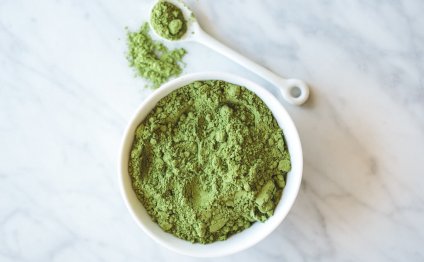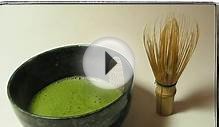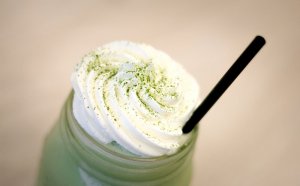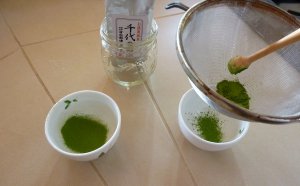
Matcha green tea Health benefits
The world seems to have gone bonkers for matcha, putting it in everything from lattes to brownies. We reveal if it's really worth joining the green party
Why all the fuss about matcha?
The world seems to be obsessed with matcha. Beautiful people are knocking back shots of it at fashion shows. Gwyneth and her tribe are toting jars of it to yoga classes. Cafes are serving it in lattes and chefs are turning it into everything from soup to brownies. Japan’s most revered form of green tea has now become a must-have ingredient for the ‘wellness’ set. But what’s the truth behind the health claims? Here’s what you need to know if you want to join the green party.
What is matcha?
Matcha is a stone-ground powdered green tea used in traditional Japanese tea ceremonies. According to the 8th century Zen priest Eisai, who introduced the tea to Japan, matcha is “the ultimate mental and medical remedy and has the ability to make one’s life more full and complete”.
What are the health benefits?
Matcha contains small amounts of various vitamins and minerals, but is most prized for being rich in polyphenol compounds called catechins, a type of antioxidant. Because matcha is made from ground up whole tea leaves, it’s a more potent source of catechins than standard green tea, which is consumed as an infusion and the leaves discarded. One study found that matcha contains three times more of the catechins called epigallocatechin gallate (EGCG) – an antioxidant linked to fighting cancer, viruses and heart disease – than other kinds of standard green tea.
Varies studies suggest that these catechins might confer health benefits, although the evidence is inconclusive. According to the National Cancer Institute of the US, more than 50 epidemiological studies looking at tea consumption and cancer risk have been published since 2006. “The results of these studies have often been inconsistent”, it says “but some have linked tea consumption to reduced risks of cancers of the colon, breast, ovary, prostate, and lung.” Another study published in the American Journal of Clinical Nutrition suggests matcha might be linked to weight loss, with researchers concluding that a daily cup of the green stuff “might be useful in the prevention and improvement of lifestyle-related diseases, mainly obesity”. Other clinical tests suggest matcha can speed physical recovery after workouts, promote cell strength and boost immunity. And with only a small amount of caffeine –24–39mg per cup – matcha fans say it delivers a feeling of “calm alertness” with none of the jitters that can come with coffee.
Matcha brownies are probably not a health food...
The National Cancer Institute points out that any potential health benefits depend on how matcha is prepared and consumed. It says that although iced and ready-to-drink matcha and other teas are becoming more popular, they don’t contain the same amount of key nutrients as brewed tea. And the addition of other ingredients dilutes the benefits further. This means that matcha lattes, smoothies and brownies are nowhere near as healthful as a cup of properly brewed tea. That said, many people find the distinctive green tea flavour of matcha delicious in its own right.
 Matcha tastes delicious in cakes and bakes Credit: StockFood GmbH / Alamy
Matcha tastes delicious in cakes and bakes Credit: StockFood GmbH / Alamy
How to prepare matcha
Rob Comins, owner of the Dorset-based fine tea merchant Comins Tea House, confirms a surge in interest in matcha over the past few years. He doesn’t mind that customers enjoy his matcha ice cream and truffles as much as his tea, because he believes food is a good introduction to its distinctive flavour. “It promotes awareness of matcha in its pure form and evokes an interest in Japanese green tea as a whole, ” he says. “People often go on to explore this category of tea in more detail.”
He urges consumers to make sure they buy high quality matcha made from tea grown in rural areas, as plants exposed to pollution can absorb lead. Prices vary widely according to the grade – don’t waste the superior stuff in cooking as it costs £12–£35 for 40g, compared to £5.50 for the same amount of culinary grade matcha that's more appropriate for adding to cakes.
To prepare matcha the traditional Japanese way, measure the tea into a heated tea bowl (chawan) with a bent bamboo spoon (chashaku). Add hot but not boiling water – 70°C is about right – then whisk to a froth using a special bamboo whisk (chasen). Comins says this last step is what gives matcha its smooth and silky consistency – and he would love it if more people opted to make their tea this way.
“High quality tea is as much about the ceremony as the tea itself, ” he says. “The act of taking a seat, observing the tea preparation in action and enjoying the final result is lost if you consume matcha in lattes or smoothies.”
RELATED VIDEO



Share this Post
Related posts
Matcha green tea smoothie
This icy cold matcha kale smoothie really hits the spot. Matcha, (to me) is as good of a pick-me-up as coffee. Plus I was…
Read MoreHow to make Matcha green tea Latte?
Personal identification information We may collect personal identification information from Users in a variety of ways, including…
Read More










